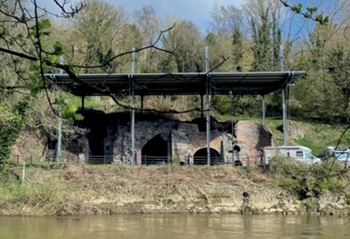Y:Cube
The first Y:Cube was an affordable housing unit designed by Rogers Stirk Harbour + Partners (RSHP) at 200 The Broadway, Wimbledon, London.
RSHP and SIG (a supplier of specialist construction products) worked with the YMCA London South West to develop an economic and innovative housing solution, providing self-contained and affordable starter accommodation for young people unable to gain a first step on the housing ladder or pay the high costs of private rent.
The Y:Cube units are 26m2 one-bed studios for single occupancy that arrive on site as self-contained units. Each one is constructed in the factory with building services already incorporated. Water, heating and electricity can be easily connected to existing facilities or to other Y:Cubes already on site. This ‘plug and play’ approach results in a modular, demountable system of apartments that are perfectly designed for brownfield sites. Additional units can be added if needed and whole developments can be taken apart and rebuilt in new locations. This modern method of construction makes for a neighbourly, clean and quiet site.
Each unit is constructed from high quality, environmentally-efficient materials (primarily renewable timber) and can achieve a level 6 Code for Sustainable Homes rating. The factory conditions in which the pods are assembled ensures tolerances of 2mm, creating accommodation that is well insulated and requires little or no heating, even in winter months. The rent is set at 65% below the market rate.
Every resident is either referred by the London Borough of Merton or a previous resident of the YMCA. The Y:Cube provides an alternative to poor-quality, shared accommodation managed by private landlords and can offer a better solution for those in housing need within the community.
Y:Cube Housing offers a real opportunity for social investment, providing a solid return to investors whilst at the same time meeting a huge need.
Richard Blakeway, Deputy Mayor of Housing said, “Y:Cube is a fantastic example of the innovative housing projects we support to address a range of housing demands. We need bold ideas to stimulate growth and address the historic failure to build enough homes and modular construction has an important role.”
- Place: London, UK
- Date: 2013 - ongoing
- Cost: £1.6 million (for a 36-unit development)
- Area: 1640 m²
- Client: YMCA
- Architect: Rogers Stirk Harbour + Partners
- Services Engineer: PBA
- Landscape Architect: Landform
- Manufacturer: Insulshell
Watch a time lapse video of the Y-Cube construction process on Vimeo.
A 36-unit Y:Cube development was created in Mitcham in 2015. See Y:Cube development in Mitcham for more information.
At the beginning of 2016, 7 further Y:Cube schemes, were proposed, including sites in Essex, south-west London and on the south coast of England, ranging in size from 15 to 36 apartments. Ref Construction Manager Magazine, 19 January 2015.
[edit] Related articles on Designing Buildings Wiki
- BRE Üserhuus.
- British post-war mass housing.
- Container City.
- McArthurGlen Designer Outlet Ashford.
- Modular buildings.
- Off-site prefabrication of buildings: A guide to connection choices.
- Open source architectural plans for modular buildings.
- Plug-In to Housing.
- Prefabrication.
- Skyfarm.
- WikiHouse.
- Y:Cube development in Mitcham.
[edit] External references
Featured articles and news
The act of preservation may sometimes be futile.
Twas the site before Christmas...
A rhyme for the industry and a thankyou to our supporters.
Plumbing and heating systems in schools
New apprentice pay rates coming into effect in the new year
Addressing the impact of recent national minimum wage changes.
EBSSA support for the new industry competence structure
The Engineering and Building Services Skills Authority, in working group 2.
Notes from BSRIA Sustainable Futures briefing
From carbon down to the all important customer: Redefining Retrofit for Net Zero Living.
Principal Designer: A New Opportunity for Architects
ACA launches a Principal Designer Register for architects.
A new government plan for housing and nature recovery
Exploring a new housing and infrastructure nature recovery framework.
Leveraging technology to enhance prospects for students
A case study on the significance of the Autodesk Revit certification.
Fundamental Review of Building Regulations Guidance
Announced during commons debate on the Grenfell Inquiry Phase 2 report.
CIAT responds to the updated National Planning Policy Framework
With key changes in the revised NPPF outlined.
Councils and communities highlighted for delivery of common-sense housing in planning overhaul
As government follows up with mandatory housing targets.




















